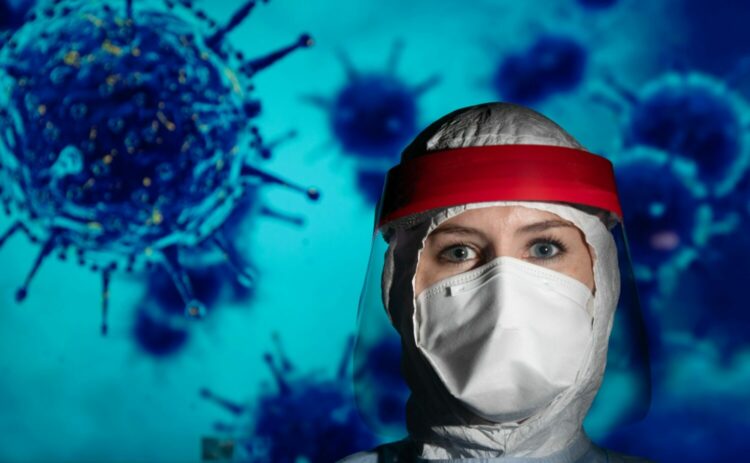A Plastic Pandemic

By Melanie Stewart
Plastic is the new dirty word. It’s in our air, oceans, soil, drinking water, virtually everywhere. Chemicals in plastic can leech into food and drinks and reduce fertility, harm fetal development, disrupt the endocrine system, affect children’s behavior, and even increase blood pressure. Plastic can break down into smaller pieces, but it never goes away—every piece of plastic ever created still exists today.
None of that was known when the first plastic was created in 1869 as a substitute for ivory, helping to stop the slaughter of elephants and tortoises. Nor did we worry about the effect as it helped us to win World War II—nylon was used for parachutes, ropes, and helmet liners, and Plexiglas replaced standard glass in aircraft windows. Single-use plastic items are a mainstay in healthcare, with sterile wrapped products reducing infection, while personal protective equipment (PPE) keeps both the patient and provider safe.
COVID-19 has increased our plastic use. PPE use has gone up, with one forecast estimating $166 billion will be spent on disposable masks in 2020. Most PPE cannot be recycled and it’s actually become an increasing amount of litter, as people toss what they perceive to be dirty on the ground—and this eventually makes its way into the ocean. Staying at home means more e-commerce, with Amazon seeing a 65% increase in customers. More people are ordering food online, which increases plastic use—containers, utensils, and bags. Many cities are temporarily banning reusable bags in favor of disposables. The International Solid Waste Association is estimating that single-use plastic consumption has increased 250-300% since COVID-19 began. To make matters worse, oil prices are low, making production of plastic cheap, while labor shortages are making recycling more challenging, which likely results in less items being recycled.
There’s still hope. UNMC/Nebraska Medicine developed a way to decontaminate and reuse some PPE. It’s easy/affordable to get a reusable mask for you/your family. Reusable masks have been shown to be safe to use. There is a lot of information available to help you reduce your plastic use—everything from buying more fresh fruits and veggies (and less packaged food) to buying plastic-free clothes (hint: most of what you are wearing is partially plastic) to consuming less in general.
Consider joining our plastic-free ecochallenge team. You pick the actions you want to take and/or learn about and can earn prizes while seeing the collective impact.
